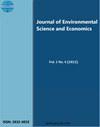Critical Analysis of Energy Consumption and Its Impact on Countries Economic Growth: An empirical analysis base on Countries income level
引用次数: 24
Abstract
Energy is a very important and key factor for developing countries like China, India, and Pakistan have a growth rate of population is very high. In today's changing world scenario of Petroleum price high, that increasing the gap between demand and supply of energy in the World. Energy shortage is a test case for governments due to the high demand for energy due to rising commercial need, consumption, and industrialization. Current economic and energy crisis scenarios force me to work on those issues. An objective of the study is to test the long-run connection between energy consumption and economic progress from 1971 to 2021. This study adopts the Unit Root Test for stationary, Cointegrating equation and Vector Error Correction used for short-run/long-run relationship; Granger Causality test used for find-out the causal association, and Ordinary least square to examine the impact between energy sources and economic progress. The study result shows Oil, Gas and Electricity are equally important short run/long run, while the Coal log-run is more than in the short-run. The energy consumption to economic growth has a unidirectional causality, indicating energy is a factor that affects country growth. Regression results also confirm that energy significance on top for economic growth, Energy Sources; Gas and Electricity were useful but energy source Oil getting more attention in past decades. Currently, high-cost sources of energy, i.e. up Oil prices, this study suggest the alternate energy source nuclear, wind and solar to ensure low-cost energy generation to economic growth.能源消费及其对国家经济增长影响的批判性分析——基于国家收入水平的实证分析
能源是一个非常重要的关键因素,因为像中国、印度和巴基斯坦这样的发展中国家的人口增长率非常高。在当今不断变化的世界形势下,石油价格居高不下,这加大了世界能源供需之间的差距。能源短缺对各国政府来说是一个考验,因为商业需求、消费和工业化不断增长,对能源的需求很高。当前的经济和能源危机迫使我着手解决这些问题。该研究的一个目的是测试1971年至2021年能源消费与经济发展之间的长期联系。本研究对平稳性采用单位根检验,对方程采用协整,对短期/长期关系采用矢量误差修正;格兰杰因果检验用于找出因果关系,普通最小二乘法用于检验能源与经济发展之间的影响。研究结果表明,石油、天然气和电力在短期/长期中同样重要,而煤炭的长期运行则超过短期。能源消费对经济增长具有单向的因果关系,说明能源是影响国家增长的一个因素。回归结果也证实了能源对经济增长的显著性,能源来源;天然气和电力是有用的,但能源石油在过去的几十年里得到了更多的关注。目前,高成本的能源来源,即油价上涨,本研究建议替代能源核能、风能和太阳能,以确保低成本的能源发电来促进经济增长。
本文章由计算机程序翻译,如有差异,请以英文原文为准。
求助全文
约1分钟内获得全文
求助全文
来源期刊

Journal of Environmental Science and Economics
Environmental Economics-
自引率
0.00%
发文量
0
期刊介绍:
Journal of environmental science and economics (JESCAE), ISSN: 2832-6032 is an open access peer-reviewed journal that considers articles and reviews articles on all aspects of environmental economics.
Aim and Scope
Journal of Environmental Science and Economics is an international scholarly refereed research journal that aims to promote the theory and practice of environmental economics, Sustainability research, technological innovation, and economics. A broad outline of the journal''s scope includes; peer-reviewed original research articles, case, and technical reports, reviews and analyses papers, short communications and notes to the editor, in interdisciplinary information on the practice and status of research in environmental science, sustainability, technological innovations, and economics.
The main aspects of research areas include, but are not limited to; Environmental pollution control and abatement technology, Sustainable and economic Development, sustainable consumption and Sustainability, Environmental and sustainability assessment, transport and fate of pollutants in the environment, concentrations and dispersion of wastes in air, water, and non-point sources pollution, atmospheric pollutants and trace gases, environmental impact assessment, industrial ecology, ecological and human risk assessment; improved energy management and auditing efficiency and environmental standards and criteria.
 求助内容:
求助内容: 应助结果提醒方式:
应助结果提醒方式:


